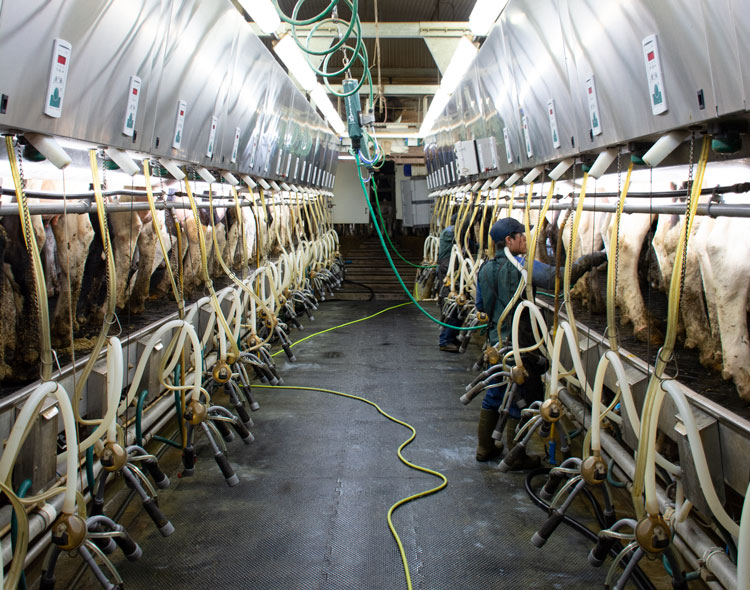
It’s a question that’s top of mind for nearly every dairy farmer.
The answer to that question depends upon your milk buyer.
A co-op buys your milk
Dumped milk is not a new situation. In recent years, dairy farms in the the Northeast and in Michigan have experienced periodic dumping of milk. In recent days, about 100 dairy farms in Wisconsin have had to dump milk, primarily members of one cooperative.
Dairy farmers have been paid for that milk, so far. But how?
In those earlier cases in Michigan and the Northeast . . . “the lost value for the milk was reblended across the cooperative’s membership so that the few who did dispose of their milk did not have to bear the full burden of the loss,” said the University of Wisconsin’s Mark Stephenson. “I expect that the cooperatives in our state who need to dump milk will reblend their losses across their members as well,” he went on to say.
That means that all the dairy farmers in the cooperative eventually help pay for the dumped milk. It’s the cooperation part of cooperatives.
A proprietary plant buys your milk
This situation gets a bit more murky. A proprietary plant could ask a direct patron to dump milk. However, those companies may not pay for it. Now, should the proprietary plant make that decision to dump milk, they may forever lose that direct shipper. Will that proprietary plant be willing to pay that long-term price?
“Short of dumping, farms could also find that milk can be sold at distressed prices,” said Stephenson. “Direct shippers, smaller cooperatives, or even larger ones may find that a plant simply doesn’t need the milk and a new home must be found.
“If there is simply more milk than the market needs at this time, you could find a buyer who will be willing to pay you something for the milk but it may be significantly less than Federal Order minimum prices. This is called distressed milk sales,” said the dairy economist.
“I have also heard that one smaller cooperative found a temporary home for member milk at very well below market prices — not quite dumped milk, but well less than the cost of production,” said Stephenson.
How will federal orders recognize dumped milk?
COVID-19 is rewriting some of the rules on dumped milk . . . even when it comes to the Federal Milk Marketing Orders. To learn more, download this March 25, 2020, notice from the Market Administrator for Central Federal Order No. 32.









